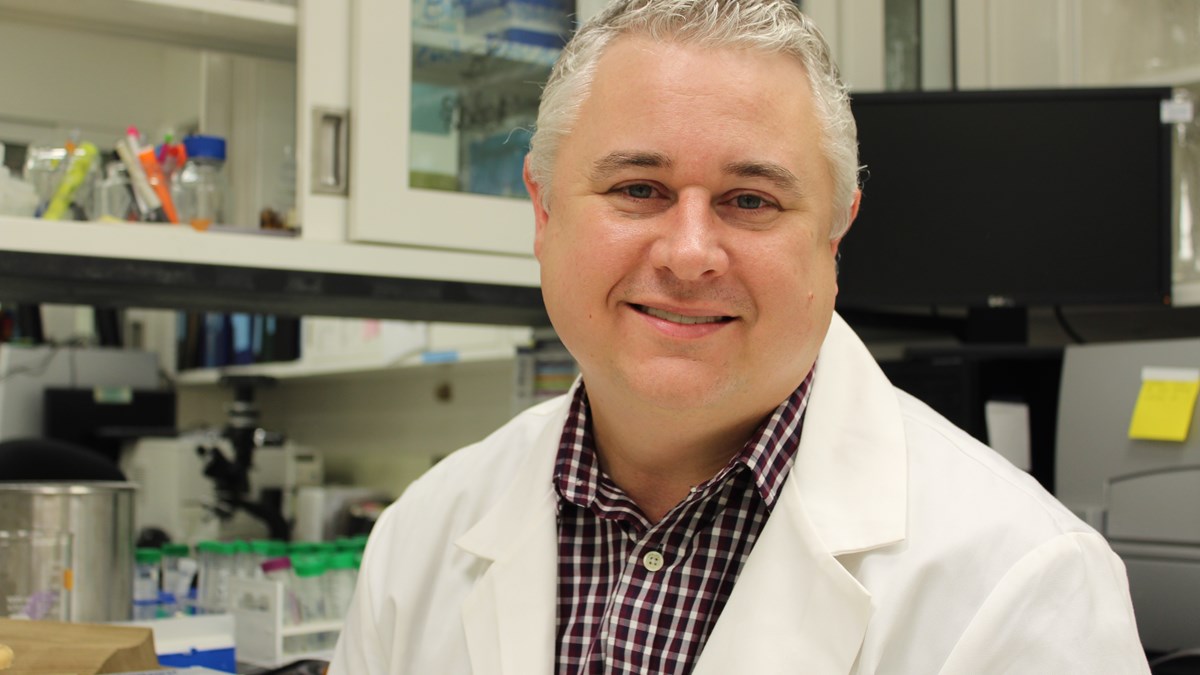David M. Smith, Ph.D.

Why did you choose this career? Was there a specific “a-ha” kind of moment?
During my undergraduate days I was thinking of going into medicine , my mother was an RN so it felt somewhat natural with my longstanding childhood interests in science. One summer I chose to work at the hospital as a phlebotomists and during that time I also got to know several surgeons fairly well. I also spent time watching surgeries in the OR and chatting with those M.D.s about their career choices and job satisfaction. The more I was in the hospital setting the more I realized that the clinic wasn't the place for creative thought and discovery. There was very little room for application of intellectual creativity or exploration, and it certainly wasn’t the place where the major unsolved health problems that we face as a society were going to be solved. My senior year I took biochemistry and loved it so much I did an independent study with one of my professors to do a second semester of biochem. I then visited the biophysics department at FSU one summer (because I happen to be in the area), and I talked to four or five faculty there who told me about their research, and I was hooked. I knew that's what I wanted to do, biomedical research. I can’t imagine doing anything else.
What in your educational experience and training stood out to you, and what advice would you share with students who are in that position now?
Take advantage of it. Don’t take it for granted. You’ll never have another time in your life when you can so wholly devote yourself to something as you will when you are a student or post doc. Don’t take your exams/grades too seriously, instead focus on understanding the material, that is what will benefit you. If one source doesn’t make since find another source that does. Most importantly, focus on the fundamentals, 95% of understanding science is the fundamentals. Also don’t be afraid to learn new things in other fields, and explorer areas outside of our niche, it will open your mind to better understand how to deal with problems in your own niche. Lastly, listen to criticism carefully, take it to heart, and even ask for it, but always remember the critic can only ever can provide one perspective, and that person does not fully understand your perspective.
Why did you choose your specialty? Does it have any special significance for West Virginia?
I’m a very visual person, I understand the world via structure and function and connectivity. Biochemistry just made sense to me. At a fundamental level, it’s just physics. You can ask specific questions, and get surprisingly specific answers in (bio)chemistry. As a graduate student most of my work was in cells, and I quickly realized that the number of alternative hypothesis that could explain how a drug effects a cell was far too large to ever investigate practically with satisfactory confidence. There is something overwhelmingly satisfying that comes from being able to be confidence that you figured out how something works. Because of this I’ve always gravitated to the simpler systems that biochemistry can explore, were results can provide high certainty to conclusions.
What grants/publications stand out to you in your career or current ones now?
I’m so grateful for all the grants that we receive that allows us to do science. The fact that that I get to do science as a career baffles my mind. This is what people should do for fun, not a job! Yet I get to do it as a career! No specific paper stands out in my mind. I tell my students if it’s not an important question, then we shouldn’t be investigating it. I don’t have time to investigate or even think about unimportant things. So with that perspective I think everything we put out of the lab is important. Of course you can’t answer every question you set out for, but regardless, all findings, even those that are opposite of what you thought, move you forward in understanding, which is the goal.
What is your research about (layman’s terms)?
Garbage. If your cells were cities, we are interested in the garbage trucks. How do they work, why don’t they work, what are their functional limitations? The garbage trucks of the cell is your proteasome. It’s a molecular machine, that uses ATP as fuel to find garbage proteins, dismantle them to Amino Acids so you can live and function. If it doesn’t work properly aberrant proteins build up and you get Alzheimer’s (and other neurodegenerative diseases), if it works too good, it can contribute to cancer progression. Our goal is to understand how the proteasome works normally, how it dysfunctions in disease, and how to alter it to treat diseases like cancer and neurodegenerative disease.
What is the most rewarding part of your position/best thing about being in your career/what you do?
I get to do science, investigate the unknown, and work with people that want to do the same.
Tell us something unique about you that others may not know.
I rebuilt a 1981 Corvette (with a friends help) during graduate school, so I could race it on the 12hrs of Sebring race track in Sebring Florida. I have not realized my dream yet, but the car still sits in my garage (next to my golf clubs), waiting for me to finish the last 10% of the work.
What else do you want to share?
“San Dimas high school football rules!”